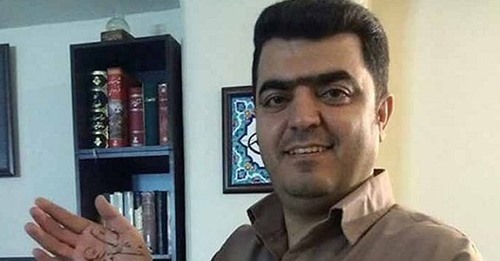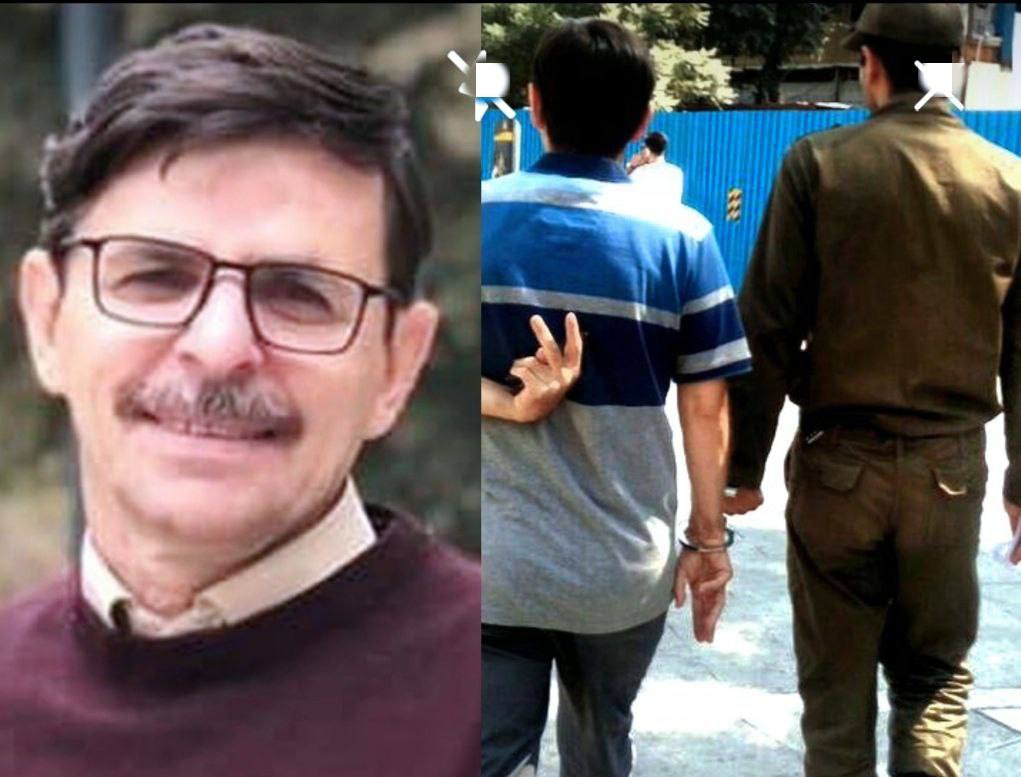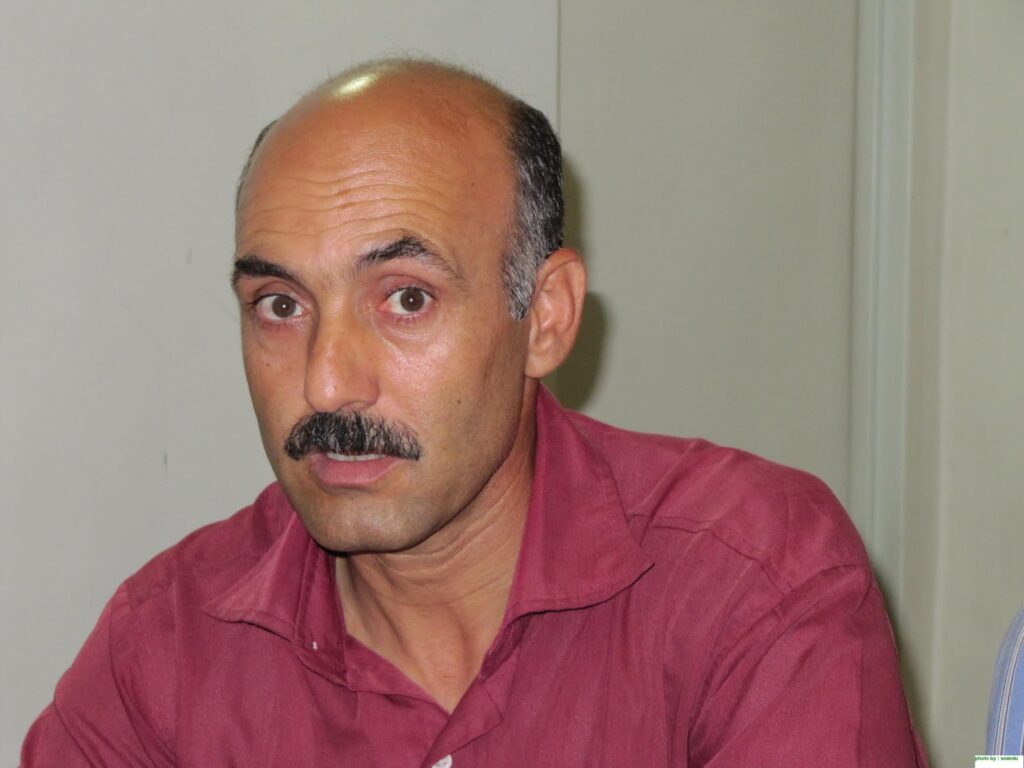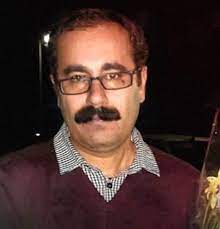
CCITTA, founded in 2002, is an association of teachers’ organizations and employees of the Ministry of Education in Iran, which in its constitution declares itself as a non-political and non-profit trade association. Its goal is to create coordination, cohesion, and unity of action in all the activities of the country’s teachers’ and education workers’ trade unions. The Council has also taken position on crises and some social issues that in the past years have played an effective role in the course of social and political developments in Iran, especially in the general protests of 2022.
As a result of its steadfast positions in defence of the civil, trade, and democratic rights of the teachers and education workers, its members have been under pressure of the security apparatus and judiciary in Iran. Many of its members have been detained, sentenced to long term imprisonments, tortured to give made-up confessions, suspended from work, demoted, or fired. Even during their prison terms, these activists had limited access to medical treatment and legal advice, their family visits were restricted, had to put large sums of bail to temporarily avoid jail, and were defamed in social media.
Ms. Mojgan Bagheri is one of the members of the CCITTA who was sentenced to two years in prison. She was released recently with the condition of wearing a GPS tracking unit on her ankle for the rest of her prison term. However, now the Board of Education of the province of Fars does not allow her to return to work. Mojgan was imprisoned with several others of her coworkers in this central province of Iran along last year, either during the May Day celebrations or at the anniversary of the 2022 ‘Woman, Life, Freedom’ mass protests.
In an open letter to its members in last September, the Education International (EI) asked them to “to urge the authorities of the Islamic Republic of Iran to immediately and unconditionally release jailed Iranian teacher unionists and to respect trade union rights.”
The letter reads: “For years, Iranian teachers have been voicing their legitimate demands for decent working conditions and the recognition of their fundamental rights and freedoms as workers and as citizens. Since May Day 2022, several teacher union leaders have been unjustifiably arrested, detained, and tortured for conducting peaceful trade union activities authorised by national and international laws.”
Teachers and education workers have been jailed across the country in many provinces and cities, including in Alborz, Tehran, Kurdistan, Bushehr, Khorasan, Khuzestan, Isfahan, Gillan, and Chahar Mahal & Bakhtiari. All provincial and county teachers’ associations belong to the national umbrella Coordinating Council of Iranian Teachers’ Trade Associations (CCITTA), which is an EI’s affiliate.
Rasoul Bodaghi, Jafar Ebrahimi, Esmail Abdi, and Mahmoud Beheshti Langaroodi are among the teacher’s activists who have been defending the rights of the education workers and have suffered greatly for their activities.
Esmail Abdi was conditionally released, on bail, last October after spending more than 8 years in prison. Now he is being denied to return to work, much like Ms. Bagheri, under the pressure from the security forces. Therefore, after 24 years of service, he now faces an unjust dismissal with no benefits or pension.
Hashem Khastar is another teacher who has intermittently spent years in prison for his activities in defence of the rights of the teachers. Since 2019, this retired teacher has been detained in a Mashhad prison for signing a letter asking Ali Khamenei, the Supreme Leader of the Islamic Republic of Iran, to resign. Reports in late January 2024 indicated that his health condition has deteriorated and is severely ill.
Mahmoud Beheshti Langaroodi, a board member of Teacher’s Association of Tehran, who has intermittently spent years in prison since 2004, has been summoned to appear before court in the city of Langarood for the charge of “propaganda against the regime and propagating lies”. He is now conditionally released on bail. This is while he was acquitted just four monthsago in a court in Gillan, in north of Iran.

Rasoul Bodaghi has spent more than 10 years in various prisons in Iran for his collective activities in support of the rights of the Iranian teachers and education workers. Once he spent full 7 years without even one day pass out of jail.

Mohammad Habibi is another Iranian human rights defender who is the spokesperson and a board member of the Teacher’s Association of Tehran. He has been arrested and sentenced multiple times for his human rights and trade union activities since 2018. Moreover, he has been terminated from his job as a teacher as a result of his campaigning for teachers’ rights, children rights, and playing an active role in Coordinating Council of the Iranian Teachers’ Trade Associations (CCITTA). As reported by the Telegram channel of CCITTA, on 10 January 2024, the lawyer of Mohammad Habibi announced that Mr. Habibi has been charged by the Revolutionary Court in the town of Shahryar with “gathering and colluding against the national security” after publishing social media posts on X, protesting against the poisoning of school children in Iran and defending the rights of students in February 2023.

Teachers and education worker activists and human rights activists in Iran are under tremendous pressure to keep them silent. In the 21st century, no one should be charged just for expressing their opinion or be penalized for participating in collective actions in defence of the human rights of their citizen and coworkers.
CODIR supports the defenders of human rights in Iran and asks for
- dropping all the charges against human rights defenders and CCITTA activists immediately and unconditionally;
- the release of jailed teacher unionists and for the respect of fundamental rights and freedoms in Iran immediately and unconditionally;
- the return of all suspended, jailed, or dismissed teachers to their jobs, without losing their seniority and pensions;
- putting an end to targeting human rights defenders in Iran and guarantee in the circumstances that would allow them to carry out their legitimate human rights activities without fear of reprisals and free of all restrictions including judicial harassment.












 Posted in
Posted in 











